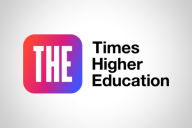You have /5 articles left.
Sign up for a free account or log in.
The right of faculty members to speak out on matters affecting their colleges and universities has long been viewed as central to the way academic freedom and shared governance are supposed to work in American higher education.
The University of California Board of Regents affirmed that right this month with an amendment to the system's "Statement on the Professional Rights of Faculty." In so doing, the board sought to undercut the impact of a 2006 U.S. Supreme Court ruling that has been used in some cases to question the faculty right to speak out on institutional governance.
The new language states that faculty members have the "freedom to address any matter of institutional policy or action when acting as a member of the faculty whether or not as a member of an agency of institutional governance."
While many faculty members might just assume that they have that right, the 2006 decision (which was not about higher education) led some courts to question such rights. That ruling, Garcetti v. Ceballos, was about a suit by a deputy district attorney in Los Angeles who was demoted after he criticized a local sheriff's conduct to his supervisors. The Supreme Court ruled that First Amendment protections do not necessarily extend to public employees when they speak in capacities related to their jobs.
Justice Anthony Kennedy wrote the opinion in the case, and he specifically stated that the decision was not intended to concern faculty rights. "There is some argument that expression related to academic scholarship or classroom instruction implicates additional constitutional interests that are not fully accounted for by this court’s customary employee-speech jurisprudence. We need not, and for that reason do not, decide whether the analysis we conduct today would apply in the same manner to a case involving speech related to scholarship or teaching," Justice Kennedy wrote.
In his dissent in the case, then-Justice David Souter expressed fear that the case would be used against faculty members at public institutions. The decision, Souter wrote, was "spacious enough to include even the teaching of a public university professor, and I have to hope that today's majority does not mean to imperil the First Amendment protection of academic freedom in public colleges and universities, whose teachers necessarily speak and write 'pursuant to official duties.'"
While some courts seemed to stay away from applying Garcetti to higher education, others did not. In 2009, the American Association of University Professors issued a report reviewing the impact of Garcetti, finding that court rulings were "posing the danger that, as First Amendment rights for public employees are narrowed, so too may be the constitutional protection for academic freedom at public institutions, perhaps fatally."
AAUP leaders at the time said that they couldn't rely on the courts, since some rulings were applying Garcetti in ways that limited the right of faculty members to criticize administrations. So the AAUP called on university boards to codify faculty rights to do so -- providing protections on which the courts have been ambivalent.
The University of California board -- easily one of the most prominent in American higher education -- has now carried out just that kind of codification. The action came after several years in which faculty groups urged such adoption.
Susan Carlson, vice provost for academic personnel, said via e-mail that the process took a long time because the change was vetted by Faculty Senates and administrators at the 10 system campuses, plus at the central level. She said that "we took the new language to the UC Regents to strengthen policy and shared governance by preserving faculty rights to critique institutional matters."
Greg Pasternak, a professor of hydrology at the University of California at Davis who was involved in proposing the change to the board, sent around an e-mail to colleagues celebrating the change. "This is the greatest expansion in academic freedom in the history of the UC system, because all previous notions of academic freedom limited the application of the idea to just one's area of scholarship," he wrote.
"Prior to this, the biggest change was to no longer require 'dispassionate' scholarship. However, academic freedom is no longer shackled to scholarship. We are free to speak on all institutional matters, whether they are within our sphere of scholarship or not. We may do so using any forum or medium. Now go out and use your freedom to stir up brilliant controversies."
Ellen Schrecker, a professor of history at Yeshiva University and author of The Lost Soul of Higher Education: Corporatization, the Assault on Academic Freedom and the End of the American University (The New Press), called the University of California action "wonderful news," and "an important precedent." She said via e-mail that it was particularly important that faculty members be able to speak out now, "at a time when administrations are challenging their faculty's responsibility for educational matters." Schrecker added that "the only way" to protect the faculty voice, "as the AAUP has been urging ever since Garcetti, is for governing boards to adopt bylaws specifically protecting their faculty's right of internal dissent. Now that California's has done so, let's hope others do so as well."








